17 New faculty members join Purdue CS
08-29-2025

17 new faculty members join the Purdue Computer Science Department
Purdue University’s Department of Computer Science has added 17 new faculty members, reinforcing its commitment to excellence in education, research, and innovation.
The new faculty bring expertise in robotics, machine learning, computer vision, natural language processing, large language models, biomedical AI and more, positioning Purdue at the forefront of transformative discoveries.
“This remarkable addition of 17 new faculty members underscores our dedication to advancing the frontiers of computer science,” said Petros Drineas, department head and professor of computer science. “Their diverse expertise will strengthen our department and accelerate Purdue Computes’ mission to lead in education, research, and discovery.”
Computing is one of four pillars of Purdue Computes, a university-wide initiative driving research and innovation at scale. The addition of these faculty members highlights Purdue’s role as a national leader in computer science.
Joining the Department of Computer Science in the fall of 2025
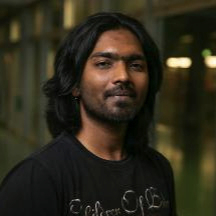 Vamsi Addanki earned his PhD in computer science from the Technical University of Berlin. He has joined the department as an assistant professor. Addanki's research lies at the intersection of networked systems and theory, where he designs and analyzes the networks that power today’s most demanding applications. His current research focuses on datacenter networks, particularly on building the next generation of photonic interconnects for GPU clusters, aiming to break through the bandwidth barriers that limit distributed training and inference at scale.
Vamsi Addanki earned his PhD in computer science from the Technical University of Berlin. He has joined the department as an assistant professor. Addanki's research lies at the intersection of networked systems and theory, where he designs and analyzes the networks that power today’s most demanding applications. His current research focuses on datacenter networks, particularly on building the next generation of photonic interconnects for GPU clusters, aiming to break through the bandwidth barriers that limit distributed training and inference at scale.
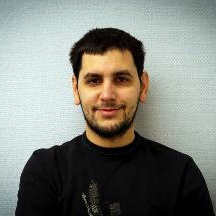 Konstantinos Ameranis earned his PhD in computer science from the University of Chicago. He has joined the department as an assistant teaching professor. His research interests include algorithms, (hyper)graphs, semidefinite programming and optimization. Konstantinos is looking forward to working with Purdue students in advancing their CS education.
Konstantinos Ameranis earned his PhD in computer science from the University of Chicago. He has joined the department as an assistant teaching professor. His research interests include algorithms, (hyper)graphs, semidefinite programming and optimization. Konstantinos is looking forward to working with Purdue students in advancing their CS education.
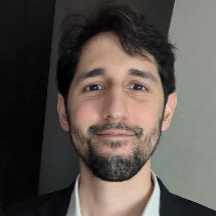 Abdullah Imran earned his PhD in computer science from Purdue University. He has joined the department as an assistant teaching professor. His research interest is in the area of computer security and privacy, and he focuses primarily on mobile devices, applications and Trusted Execution Environments. He also has a keen interest in anti-cheat software for video games.
Abdullah Imran earned his PhD in computer science from Purdue University. He has joined the department as an assistant teaching professor. His research interest is in the area of computer security and privacy, and he focuses primarily on mobile devices, applications and Trusted Execution Environments. He also has a keen interest in anti-cheat software for video games.
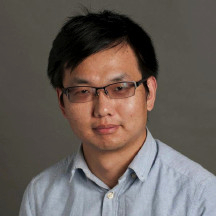 After Chunwei Liu earned his PhD from the University of Chicago in computer science, he was a postdoctoral associate at MIT. He has joined the department as an assistant professor. His research interests span compound AI systems, database systems, cloud/edge computing, and database benchmarking. He focuses on optimizing data systems for both conventional data analytics and emerging AI-powered pipelines. Liu develops privacy-preserving workload generation techniques for evaluating cloud database systems, collaborating with major cloud vendors such as Microsoft, Amazon, Intel, Meta, and Google. Additionally, he explores novel data compression methods for data systems and implements adaptive compression selection in both conventional and resource-constrained databases and machine learning systems. Furthermore, he is engaged in high-dimensional data analysis, with a particular emphasis on time series applications.
After Chunwei Liu earned his PhD from the University of Chicago in computer science, he was a postdoctoral associate at MIT. He has joined the department as an assistant professor. His research interests span compound AI systems, database systems, cloud/edge computing, and database benchmarking. He focuses on optimizing data systems for both conventional data analytics and emerging AI-powered pipelines. Liu develops privacy-preserving workload generation techniques for evaluating cloud database systems, collaborating with major cloud vendors such as Microsoft, Amazon, Intel, Meta, and Google. Additionally, he explores novel data compression methods for data systems and implements adaptive compression selection in both conventional and resource-constrained databases and machine learning systems. Furthermore, he is engaged in high-dimensional data analysis, with a particular emphasis on time series applications.
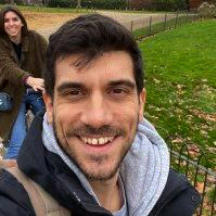 Sotiris Nousias received his PhD in computer vision from University College London and was a postdoctoral fellow at the University of Toronto. He has now joined the department as an assistant professor. Nousias' research interests span computer vision, robotics, and machine learning, with a current focus on computational imaging—an area that integrates innovative optical designs, advanced mathematical and statistical algorithms, and cutting-edge sensor technologies to surpass the limitations of traditional imaging systems. His work explores how to process the fundamental quantity of light—the photon—to enable new ways of visualizing and interpreting the world. His research has been recognized with Best Paper Awards at two top computer vision conferences.
Sotiris Nousias received his PhD in computer vision from University College London and was a postdoctoral fellow at the University of Toronto. He has now joined the department as an assistant professor. Nousias' research interests span computer vision, robotics, and machine learning, with a current focus on computational imaging—an area that integrates innovative optical designs, advanced mathematical and statistical algorithms, and cutting-edge sensor technologies to surpass the limitations of traditional imaging systems. His work explores how to process the fundamental quantity of light—the photon—to enable new ways of visualizing and interpreting the world. His research has been recognized with Best Paper Awards at two top computer vision conferences.
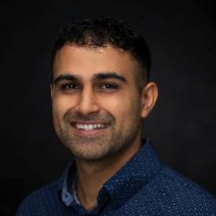 Rohan Paleja earned his PhD in robotics from the Georgia Institute of Technology. Prior to joining the department, he was a technical staff researcher in the Artificial Intelligence Technology Group at MIT Lincoln Laboratory. He has joined the department as an assistant professor. Paleja’s research focuses on developing novel machine learning architectures and algorithms to advance robot learning and human-robot collaboration. His work aims to equip autonomous agents with the ability to operate effectively in diverse, human-rich, and unstructured real-world environments.
Rohan Paleja earned his PhD in robotics from the Georgia Institute of Technology. Prior to joining the department, he was a technical staff researcher in the Artificial Intelligence Technology Group at MIT Lincoln Laboratory. He has joined the department as an assistant professor. Paleja’s research focuses on developing novel machine learning architectures and algorithms to advance robot learning and human-robot collaboration. His work aims to equip autonomous agents with the ability to operate effectively in diverse, human-rich, and unstructured real-world environments.
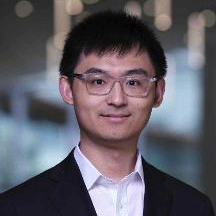 Yuxiang Peng earned his PhD in computer science at the University of Maryland, College Park. He has joined the department as an assistant professor. Peng’s research focuses on both theoretical and practical explorations of high-assurance software toolchains for quantum computing. His goal is to enable broader access to modern quantum computers by helping users harness their power across diverse domain problems. More recently, he has become interested in building optimization solvers using emerging technologies.
Yuxiang Peng earned his PhD in computer science at the University of Maryland, College Park. He has joined the department as an assistant professor. Peng’s research focuses on both theoretical and practical explorations of high-assurance software toolchains for quantum computing. His goal is to enable broader access to modern quantum computers by helping users harness their power across diverse domain problems. More recently, he has become interested in building optimization solvers using emerging technologies.
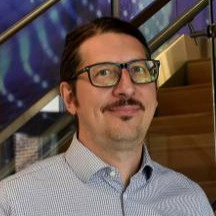 Phil Sands earned his PhD in Educational Psychology and Education Technology from Michigan State University. He has joined the department as an assistant teaching professor. Before joining the department, he was an assistant professor of computer science at the University of Olivet. His research interests include computer science education, student motivation, and issues of broadening participation for marginalized student groups in computing. Specifically, his work has addressed the role that student self-efficacy and the antecedents of self-efficacy play on computer science interest, identity development, and career commitment.
Phil Sands earned his PhD in Educational Psychology and Education Technology from Michigan State University. He has joined the department as an assistant teaching professor. Before joining the department, he was an assistant professor of computer science at the University of Olivet. His research interests include computer science education, student motivation, and issues of broadening participation for marginalized student groups in computing. Specifically, his work has addressed the role that student self-efficacy and the antecedents of self-efficacy play on computer science interest, identity development, and career commitment.
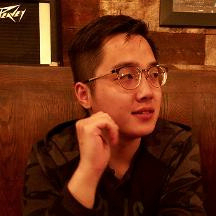 Hanshen Xiao earned his PhD in computer science from the Massachusetts Institute of Technology. He is joining the department as an assistant professor. Xiao is broadly interested in provable trustworthy computation. His research develops theoretical frameworks to quantitatively model emerging societal concerns—such as privacy, adversarial robustness, and copyright protection—in cutting-edge data processing tasks. On the practical side, he designs algorithms for black-box trustworthiness analysis, enabling efficient and automatic construction of provably trust-preserving solutions while treating target data processing functions as black boxes, without requiring additional assumptions or knowledge. His recent work extends these approaches to new domains of trustworthy data processing.
Hanshen Xiao earned his PhD in computer science from the Massachusetts Institute of Technology. He is joining the department as an assistant professor. Xiao is broadly interested in provable trustworthy computation. His research develops theoretical frameworks to quantitatively model emerging societal concerns—such as privacy, adversarial robustness, and copyright protection—in cutting-edge data processing tasks. On the practical side, he designs algorithms for black-box trustworthiness analysis, enabling efficient and automatic construction of provably trust-preserving solutions while treating target data processing functions as black boxes, without requiring additional assumptions or knowledge. His recent work extends these approaches to new domains of trustworthy data processing.
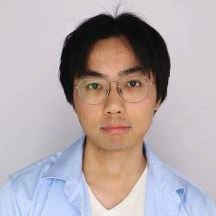 Wei Zhan earned his PhD in computer science from Princeton University. He was a Chicago Prize Postdoctoral Fellow in the Department of Computer Science at University of Chicago. He is joining the department as an assistant professor. Zhan is broadly interested in theoretical computer science, with a focus on complexity theory and quantum information. His current research examines the power of quantum mechanics and randomness under limited computational resources, such as small space complexity or shallow circuits.
Wei Zhan earned his PhD in computer science from Princeton University. He was a Chicago Prize Postdoctoral Fellow in the Department of Computer Science at University of Chicago. He is joining the department as an assistant professor. Zhan is broadly interested in theoretical computer science, with a focus on complexity theory and quantum information. His current research examines the power of quantum mechanics and randomness under limited computational resources, such as small space complexity or shallow circuits.
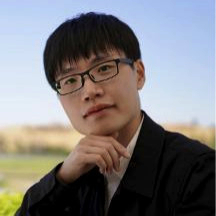 Ruizhe Zhang earned his PhD in Computer Science from the University of Texas at Austin. He was a Simons Quantum Postdoctoral Fellow at Simons Institute for the Theory of Computing at University of California, Berkeley and a Visiting Scholar at the Institute for Pure and Applied Mathematics, UCLA. Zhang is broadly interested in theoretical computer science. His current research focuses on algorithmic problems in quantum computing, optimization, and machine-learning theory, aiming for provable efficiency and robustness with real-world impact.
Ruizhe Zhang earned his PhD in Computer Science from the University of Texas at Austin. He was a Simons Quantum Postdoctoral Fellow at Simons Institute for the Theory of Computing at University of California, Berkeley and a Visiting Scholar at the Institute for Pure and Applied Mathematics, UCLA. Zhang is broadly interested in theoretical computer science. His current research focuses on algorithmic problems in quantum computing, optimization, and machine-learning theory, aiming for provable efficiency and robustness with real-world impact.
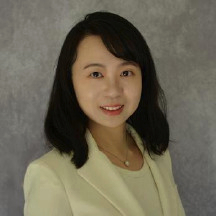 Weiruo Zhang earned her PhD in Electrical Engineering from Stanford University. Her research focuses on Biomedical AI, developing machine learning methods that integrate spatial omics, medical imaging and clinical data to study tumor progression and improve cancer treatment. She created CELESTA, a widely adopted tool to identify cell types in tissue samples, and MONTAGE, a framework for integrating multi-modal data to analyze cancer tissue. Her work has been published in leading journals including Nature Methods, Science Immunology and Cell.
Weiruo Zhang earned her PhD in Electrical Engineering from Stanford University. Her research focuses on Biomedical AI, developing machine learning methods that integrate spatial omics, medical imaging and clinical data to study tumor progression and improve cancer treatment. She created CELESTA, a widely adopted tool to identify cell types in tissue samples, and MONTAGE, a framework for integrating multi-modal data to analyze cancer tissue. Her work has been published in leading journals including Nature Methods, Science Immunology and Cell.
About the Department of Computer Science at Purdue University
Founded in 1962, the Department of Computer Science was created to be an innovative base of knowledge in the emerging field of computing as the first degree-awarding program in the United States. The department continues to advance the computer science industry through research. U.S. News & World Report ranks the department No. 8 in computer engineering and No. 16 overall in undergraduate and graduate computer science. Additionally, the program is ranked No. 6 in cybersecurity, No. 8 in software engineering, No. 13 in systems, No. 15 in programming languages and data analytics, and No. 18 in theory. Graduates of the program are able to solve complex and challenging problems in many fields. Our consistent success in an ever-changing landscape is reflected in the record undergraduate enrollment, increased faculty hiring, innovative research projects, and the creation of new academic programs. The increasing centrality of computer science in society, academic disciplines and new research activities — centered around foundations and applications of artificial intelligence and machine learning, such as natural language processing, human computer interaction, vision, and robotics, as well as systems and security — are the future focus of the department. Learn more at cs.purdue.edu.